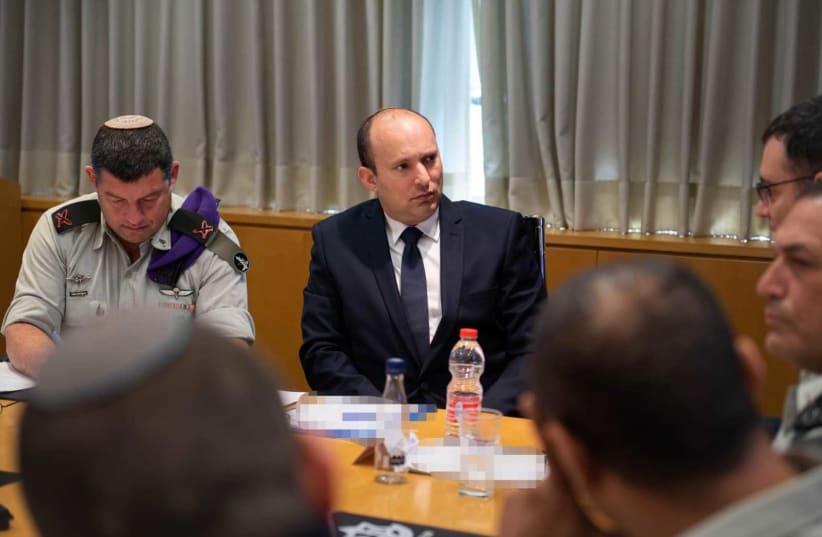It has been weeks since Defense Minister Naftali Bennett urged the government to have his ministry lead the fight against the coronavirus outbreak instead of the Health Ministry.
On Thursday, Bennett was the last man standing after Health Minister Ya’acov Litzman and his entire staff were ordered to self-quarantine.
Litzman’s diagnosis has forced several top officials into quarantine, including Prime Minister Benjamin Netanyahu, Health Ministry director-general Moshe Bar Siman Tov, Mossad Director Yossi Cohen, National Security Adviser Meir Ben-Shabbat and the head of public health at the Health Ministry, Dr. Sigal Sadetzki.
IDF Chief of Staff Lt.-Gen. Aviv Kochavi, OC Home Front Command Maj.-Gen. Tamir Yadai and OC Operations Maj.-Gen. Aaron Haliva are in self-isolation until the end of the week after being in contact with a coronavirus patient in mid-March.
It is as if all senior political and military officials fighting against the continued spread of the deadly coronavirus are self-isolating. Though key officials are in quarantine, they are continuing to work, holding conference calls with all relevant authorities who remain in the field.
The deadly virus seeped into Israel despite strict regulations imposed, including closing the borders early on.
While the coronavirus is an enemy that the country has never encountered, Israel did not hesitate to call on its security services to help in the fight against it.
The government made a wise choice early on, imposing strict regulations, including ordering anyone returning from abroad to enter quarantine and drastically reducing the number of individuals allowed to gather to two.
The Mossad, which is trying to obtain medical equipment and personal protective equipment throughout the world, and the IDF’s Logistical Corps, Home Front Command and even elite units like Sayeret Matkal have been instrumental in Israel’s response to the global pandemic.
Though the government has yet to declare a national state of emergency, under law, Home Front Command is authorized to assume responsibility for managing the situation alongside civilian authorities.
Last week, the IDF was ordered to take over care for senior and vulnerable members of civilian society, providing them with food, medical equipment and other basic needs. Thousands of the elderly have been provided for by thousands of Home Front Command soldiers in an operation called Golden Guards.
The IDF is ready and willing to immediately take control of the fight, senior defense officials have said.
While it may not be the war he thought he would command, Bennett has been impressive in handling the coronavirus crisis. He has opened several quarantine hotels, allowing for thousands of Israelis to safely self-isolate away from family and friends; deployed hundreds of soldiers to accompany police in enforcing the nationwide semi-lockdown; and procured millions of masks and other protective equipment.
The Defense Ministry has been able to address the lack of ventilators in the country by turning a missile factory into one that makes ventilators. Radar used to protect the borders is being tested to monitor the vital signs of coronavirus patients.
The brains of Start-up Nation are churning out “Made in Israel” products to battle a global pandemic.
Early on, the defense minister called on the government to carry out coronavirus tests, saying the Health Ministry should test more than 30,000 people daily.
While the Health Ministry has been ordered to carry out such a number, only 7,000 tests are currently being done daily.
Despite the number of Israelis diagnosed with the virus continuing to rise, and even though the Defense Ministry is capable of handling such a logistical nightmare, Prime Minister Benjamin Netanyahu seems reluctant to hand over responsibility for the pandemic to Bennett.
The management of this crisis has shown a gap in the government’s already fragile leadership.
The coronavirus crisis is not one limited to the Health Ministry. It is a multifaceted and complicated crisis that will have a lasting impact on the State of Israel.
While the Health Ministry works to take care of those struggling to breath, the Defense Ministry has the best logistical arm to assume responsibility.
